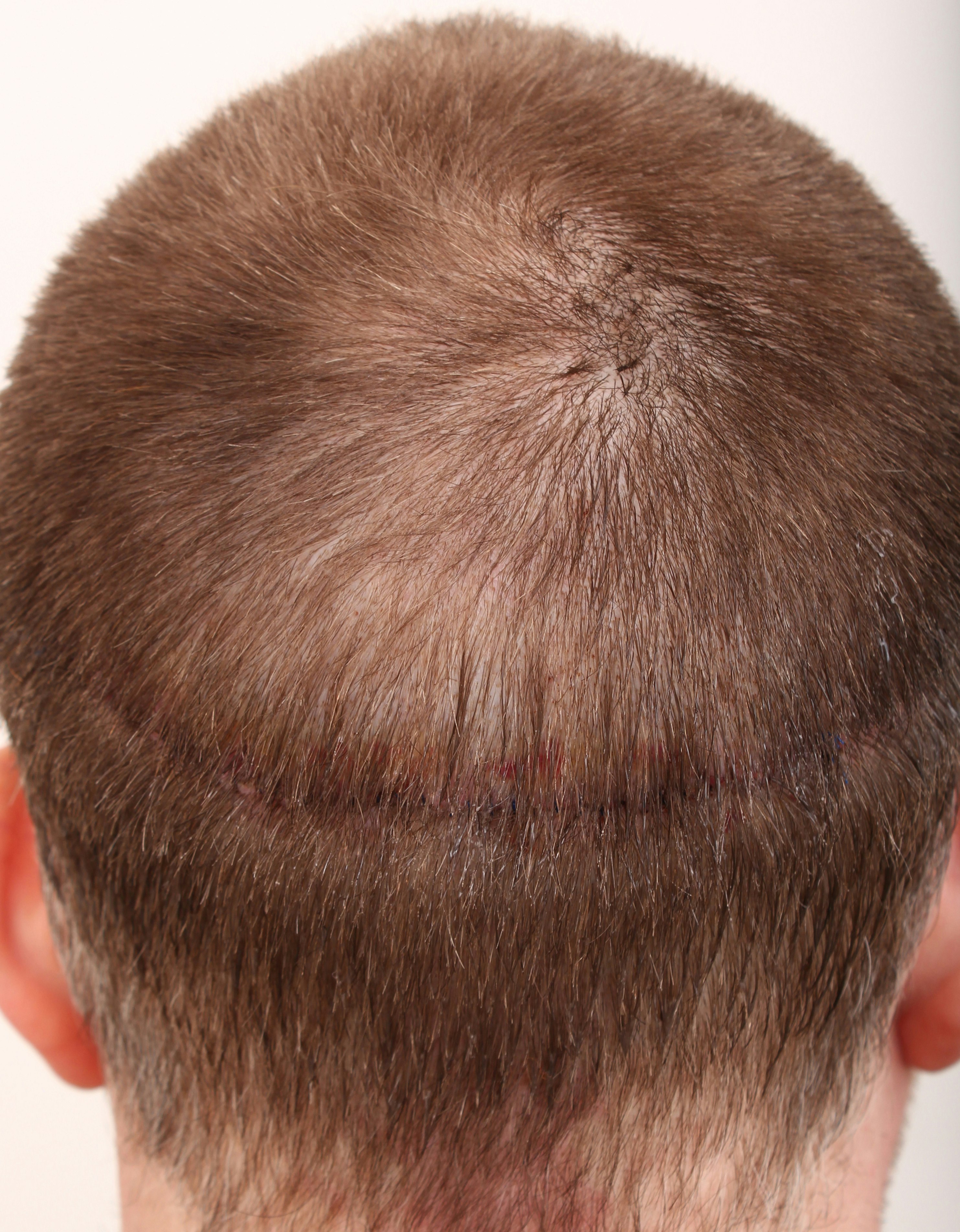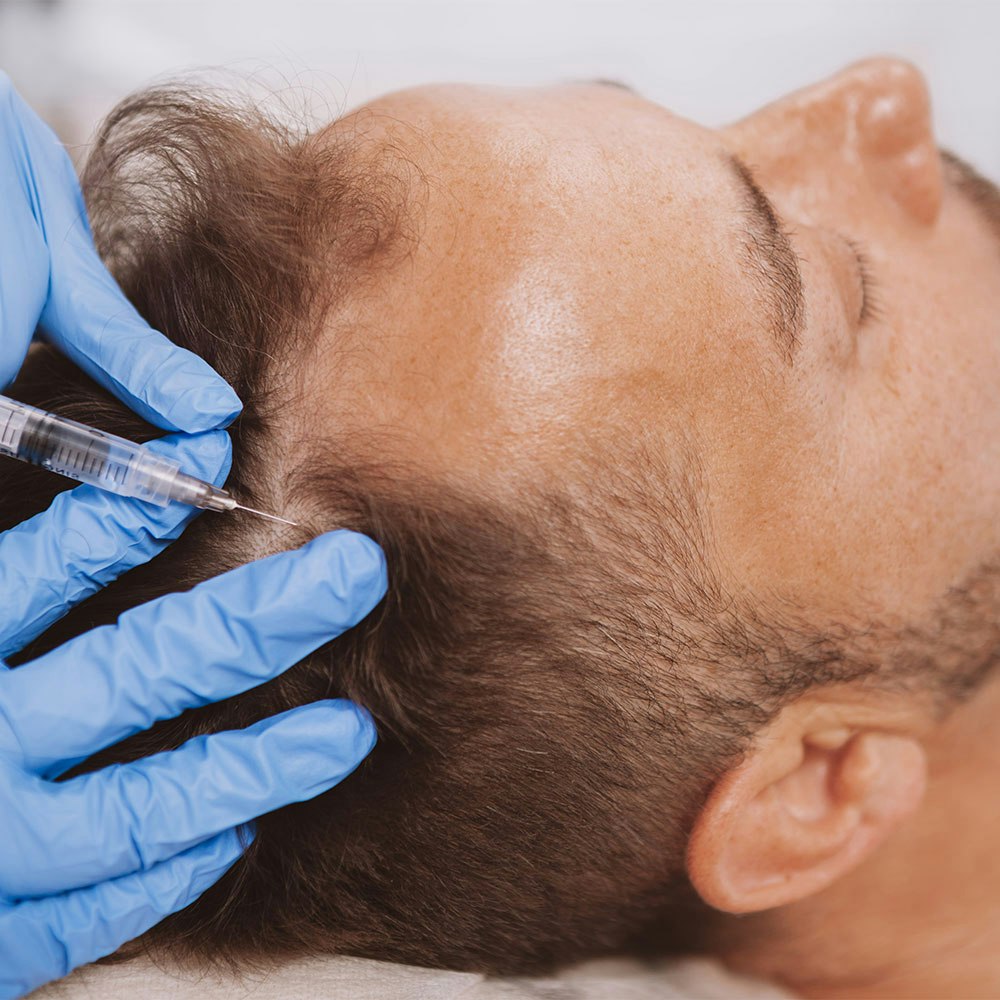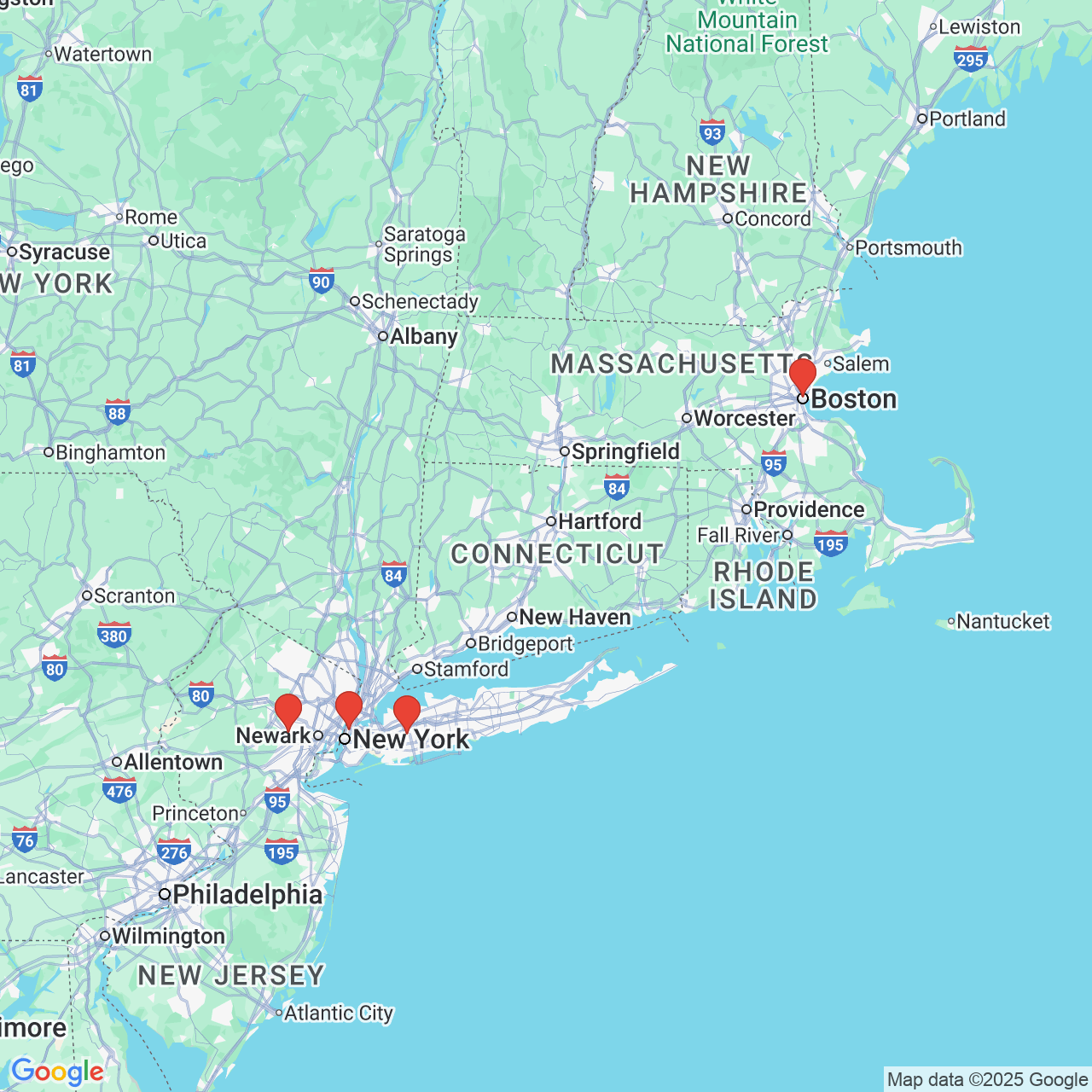Hair Loss in Men
About two-thirds of American men will experience hair loss (alopecia) by the age of 35.
By the age of 50, about 85% of men will notice thinning hair. Hair loss in men is that common!
Dr. Robert J. Dorin has successfully created personalized hair loss solutions* for 30,000+ men and women around the world.

Understanding Male Hair Loss What Is Alopecia?
/
Hair loss, or alopecia, refers to several conditions characterized by the loss of hair from the scalp or elsewhere on the body. Hair loss can affect men, women, and children. The timing and the appearance vary depending on the condition's cause.
Early Signs of Male Hair Loss
Hair sheds naturally. Most people lose around 100 hairs from their heads every day. However, some people experience excessive hair loss. Symptoms of hair loss will vary depending on what type of condition the person has. Some general signs and symptoms associated with, but not specific to, hair loss include:
Slow But Steady Hair Loss on the Top of the Head
The most common form of the condition is androgenetic alopecia, otherwise known as female or male pattern baldness. It affects both men and women, but each gender experiences different signs of gradual thinning of hair on the top of the head. Hair often recedes at the front of the scalp, crown, and temples on either side, or spreads out from the top.
Round Patches of Thin or Bald Areas
This type of hair loss looks like round, hairless patches on the scalp that typically start with one or two patches and can develop into complete baldness caused by alopecia areata.
Rapid Hair Loss
Stress affects every person differently. Extreme stress, trauma, or shock to the body or emotions can cause sudden hair loss. You might notice hair bundles coming out while you're in the shower or when you brush your hair.
Norwood Patterns of Male Hair Loss
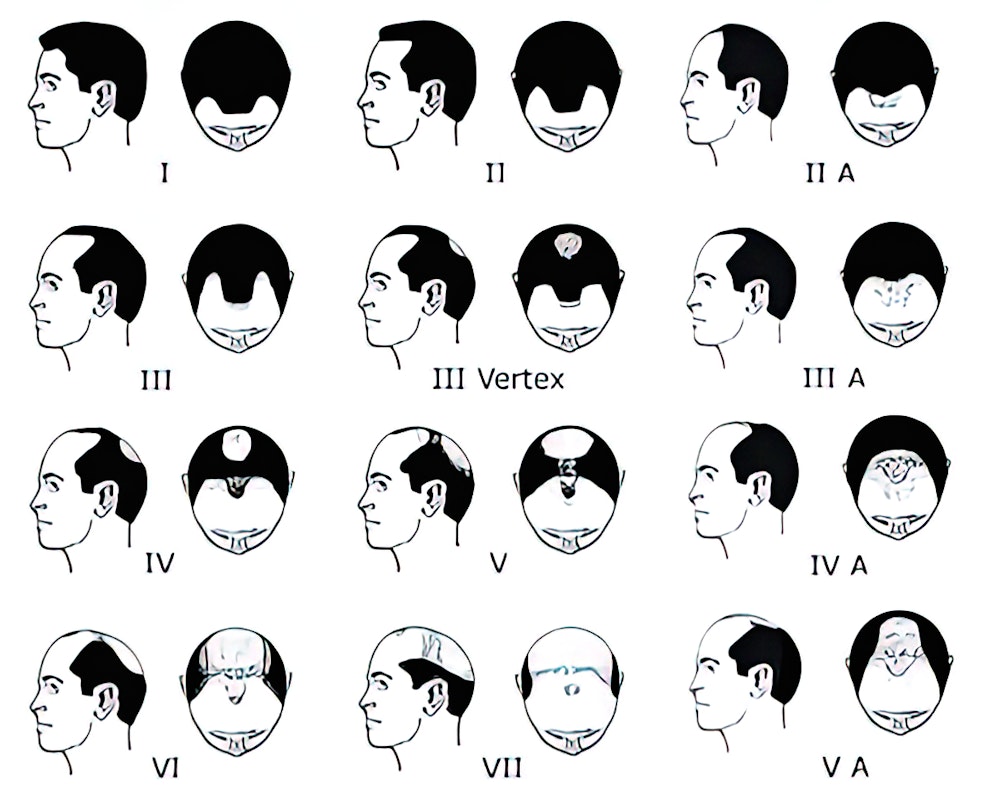
Do You Have Signs of Hair Loss? Request an In-Person or Online Consultation Today
If you are unhappy with the state of your hair, you are not alone. Many adult men experience male pattern baldness. However, thanks to the modern hair transplant technology and medical treatment we make available to Greater NYC and beyond, your hair loss does not have to be permanent.
Dr. Robert J. Dorin can develop a customized treatment plan that combines nonsurgical, surgical, and medical treatment (such as minoxidil) for effective results.
We invite anyone curious about hair transplants or other treatments to request a consultation with our medical team today. With three hair loss clinics in the Greater New York City area and one in Boston, MA, we are welcoming new patients to explore various hair restoration treatments.
You can request an in-person or online consultation with The Hair Loss Doctors By Robert J. Dorin serving Greater NYC and Boston, by completing our request form or calling:
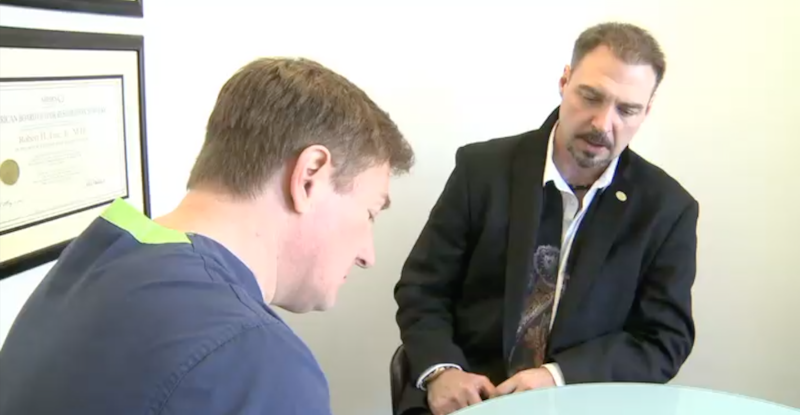
Dr. Dorin conducting a hair loss consultation.
"Nothing short of exceptional." 5-Star Reviews From Our NYC-Area Patients
I had the privilege of receiving a hair transplant from Dr. Robert Dorin three years ago, and I can confidently say that my experience and results have been nothing short of exceptional... Most of the barbers I've been to since the procedure haven't realized that I've had a hair transplant. Those who did notice were quick to mention that it's among the best they've ever seen. This speaks volumes about the precision and artistry involved in Dr. Dorin's work. I continue to recommend Dr. Dorin and his team to friends and colleagues, and should I ever need another procedure or touch-up in the future, I will gladly return. Thanks again.
View on GoogleI recently decided to have Dr. Dorin perform my hair transplant surgery and couldn't be more pleased with the treatment. The team at Dr. Dorin's office is extremely professional and truly make you feel validated in your decision to work with them. While the surgery can be nerve wracking, Peter and team really offered up helpful insights to prepare you for recovery including multiple follow up conversations which were all very helpful. The team provided prompt 24/7 availability for all my questions which really put me at ease. I am very happy with my decision and highly recommend Dr. Dorin for all your hair transplant needs.
View on GoogleMale Hair Transplant Testimonial A Patient Discusses His Hair Restoration Experience at The Hair Loss Doctors
Types of Non-Scarring Alopecia
|
I |
Primary Skin Disorders | |
| Androgenetic Alopecia | Male and female pattern baldness | |
| Tinea Capitis | Fungal infection of the scalp | |
| Alopecia Areata | Usually patchy, sometimes diffuse totally bald area |
|
II |
Drugs that may cause hair loss | ||
| Amphetamine | Cimetidine | Lithium | |
| Acitretin | Colchicine | Nicotinic Acid | |
| Allopurinol | Corticosteroids | Nitrofurantoin | |
| Amiodarone | Gentamicin | Oral Contraceptives | |
| Anabolic | Heparin | Propylthiouracil | |
| Beta Blockers | Itraconazole | Salicylates | |
| Bromocriptine | Immunoglobulin | Steroids Sulfasalazine | |
| Captopril | Interferon | Tricyclics | |
| Carbimazole | Isoniazid | Terfenadine | |
| Chemotherapeutic | Isotretinoin | Warfarin | |
| Levodopa | |||
|
III |
Systemic diseases that can cause hair loss | |
| Hypothyroidism | HIV infection | |
| Hyperthyroidism | Systemic Lupus Erythematosus | |
| Hypopituitarism | Secondary Syphilis | |
| Deficiency of Vitamin B, Protein, Biotin, Iron, Zinc | ||
| IV | Trichotillomania- | An obsessive-compulsive disorder characterized by self-inflicted hair pulling resulting in hair loss. |
Types of Scarring Alopecia
|
I |
Primary Skin Disorders |
| Lichen Planus | |
| Cutaneous Lupus | |
| Folliculitis Decalvans | |
| Morphea | |
| Traumatic Alopecia- chemical burns | |
| Idiopathic Pseudopelade of Brocq |
|
II |
Systemic diseases leading to hair loss |
| Lupus Erythematosus | |
| Sarcoidosis | |
| Skin Metastases |
Hereditary Causes of Hair Loss
Male pattern hair loss is a hereditary disorder and often develops at 20 years old or later and is a progressive disorder. Male pattern hair loss is not controlled by a single gene, but rather by genes interacting together. The most common type of hereditary hair loss is androgenetic alopecia.
With male pattern hair loss, hair follicles on the top of the head are sensitive to normal levels of hormones, specifically DHT (dihydrotestosterone). This sensitivity can disrupt the normal growth cycle of hair follicles, resulting in shorter, thinner hair that eventually stops growing altogether. Male pattern baldness is generally permanent. However, several treatments have shown satisfying results for patients.
Take Advantage of Hair Restoration Solutions Request a Consultation
Androgenetic alopecia affects 30-50% of American men and millions more worldwide. Some men might experience male pattern baldness as early as their teens. However, a constantly growing number of men are overcoming androgenetic alopecia and other types of hair loss thanks to improvements in surgical hair transplantation and other solutions.
While some types of hair loss happen slowly and may need minimal treatment, other types are aggressive and may require more extensive treatments. Find out which treatment is right for you by requesting an online or in-person consultation at one of our hair loss clinics serving Greater NYC and Boston:
(516) 214-6776
"Dr Dorin restored my hair over 6 years ago and today it is still a life changer. His staff and approach is effective and precise. I would recommend Dr Dorin to any guy who wants to truly change his life." Dutch VW
What Causes Non-Hereditary Hair Loss?
In this video, we take a look at the environmental and self-inflicted factors that can result in hair loss.
Who Is Susceptible to Protein Deficiency?
There are several groups of individuals who are more susceptible to protein deficiencies related to their dietary choices:
- Strict vegetarians
and vegans - Bariatric surgery patients
- Those with malabsorption syndrome
- Those who are on strict diets
In addition, patients suffering from hypothyroidism may also struggle with insufficient protein levels.
Symptoms of Trichodynia
Burning scalp syndrome can result in several symptoms such as:
- Burning sensation
- Prolonged itching
- Scalp sensitivity
- Pain and discomfort
These symptoms may seem constant or worsen during certain activities, such as combing and brushing your hair. Little research has been conducted on the subject, but it appears to affect three times more women than men. However, men are often less likely to seek treatment and more prone to experience hair loss naturally, so it is unclear whether men actually face a higher risk than women.
Burning scalp syndrome and hair loss are closely associated, although studies have been unable to conclude whether hair loss leads to trichodynia, or results from the condition. In either case, patients can experience increased stress, anxiety, and depression, which may worsen their condition.
Get Your Hair and Confidence Back Request an Online or In-Person Consultation
Our practices serving Greater NYC and Boston, MA, are recognized as a global leader in hair restoration treatment because we can consistently achieve excellent outcomes. Our goal is to help all of our patients achieve the hairline and confidence that they desire, whether it involves nonsurgical treatment like minoxidil or surgical intervention using hair grafts. You can schedule your online or in-person consultation at one of our hair loss clinics serving Boston and Greater NYC today by calling:
(516) 214-6776
"Our goal is to help all of our patients achieve the hairline and confidence that they desire."
How to Prevent Hair Loss Due to Iron Deficiency
Ferritin is a blood cell protein that contains iron and assists in producing hair follicles. When your body doesn't have proper iron levels, the stored proteins will be transferred from non-essential areas, such as hair bulbs, to essential tissues and organs like your heart.
Patients struggling to maintain proper iron levels should strive to improve their diet and focus on consuming more iron-rich foods. Foods that can naturally increase levels of iron include:
- Red Meat
- Pork
- Poultry
- Seafood
- Dark Leafy Greens
- Beans
- Peas
Fortified products, such as cereal, pasta, bread, or iron supplements, may also be recommended. While these measures often help improve iron levels, your body may still take months to adjust and begin regrowing hair. Our NYC-headquartered practice can provide the guidance you need if an iron deficiency is causing your hair loss.
The Hair Loss Doctors Difference Full and Natural-Looking Hair Restoration
What Causes Hair Loss After Chemotherapy?
The medication used to attack cancer-causing cells can also attack other rapidly dividing cells, including those that contribute to hair growth. This rapid hair loss is referred to as anagen effluvium, and it can affect hair on your head and virtually any other part of the body. The degree to which hair loss occurs depends mainly on the unique composition of the prescription and the duration of treatment. Drugs associated with chemo that commonly cause hair loss include:
- Adriamycin
- Cyclophosphamide
- Dactinomycin
- Daunorubicin
- Docetaxel
- Doxorubicin
- Etoposide
- Fluorouracil
- Ifosfamide
- Irinotecan
- Methotrexate
- Nitrosoureas
- Paclitaxel
- Tamoxifen
- Topotecan
- Vinorelbine
In cases when radiation must also be applied to the head, hair will often fall out and, for many patients, will not grow back.
What Chemotherapy Patients Can Expect Before, During, and After Treatment
Before Chemotherapy
While no proven method can completely prevent the side effect of hair loss, our clinic can help you better prepare. For those who wish to conceal their hair loss or maintain a natural hairstyle, we provide several resources to help patients find a natural-looking wig or hairpiece that suits them.
During Chemotherapy
The extent of hair loss will vary from patient to patient and may range from minimal thinning to complete baldness. Generally, hair will fall out several weeks into treatment or later. Once hair loss has begun, patients can expect the condition to persist for the duration of chemotherapy.
After Chemotherapy
Once treatment has ended, hair loss should cease a few weeks after. Hair follicles may grow back in a different color or texture than before, but will often revert to their normal state after a few years. Restoration options are available for patients who do not experience substantial regrowth or experience complete baldness after chemotherapy.
"Our greater New York City practice is recognized
as a global leader in hair restoration treatment
because we can consistently achieve excellent outcomes."
Our Featured Surgical
and Nonsurgical Treatments
Dr. Robert J. Dorin is a New York City doctor serving Greater NYC and Boston who can combine nonsurgical and surgical procedures with a medication regimen of minoxidil or other hair growth medications. Dr. Dorin will discuss any side effects of medication and surgery with you to help you make an informed decision. Here is a look at some of our featured hair loss treatments:
Follicular Unit Extraction (FUE)
FUE is a minimally invasive and minimally scarring surgery that yields natural-looking results. Individual hair follicles are extracted from the scalp, and grafts are inserted into strategically placed incisions. Patients will notice new hair growth about three to six months after surgery.
Follicular Unit Transplants (FUT)
FUT surgery involves removing a strip of hair-bearing skin from the back or sides of the scalp to make the grafts that will be placed back into areas of thinning hair. This treatment can cover a larger area than FUE, making it a solution for many patients with large patches of hair loss and severe balding.
Platelet-Rich Plasma (PRP) Therapy
PRP therapy encourages tissue growth by injecting platelets (growth factors) into the patient's scalp. For this nonsurgical process, blood is collected, platelet-rich plasma is separated from the blood sample, the scalp is prepared with micro-needling, and the PRP is injected into the affected area.
Medications
For certain conditions, doctors may recommend the patient take prescription or over-the-counter medication, like minoxidil, which is often marketed under the name Rogaine®. Our doctor serving Greater NYC and Boston, MA, may recommend minoxidil or other medications alongside surgical or nonsurgical treatment.
Discover Which Treatment Is Right for You Request an Online or In-Person Consultation
Dr. Robert J. Dorin delivers consistently outstanding results to patients throughout Greater NYC and beyond. He can help you achieve your hair growth goals by developing a custom treatment plan that's right for you. To find what treatment is suited to your needs and to meet with our board-certified surgeon, book an in-person or online consultation at one of our hair loss clinics in Greater NYC and Boston:
(516) 214-6776
"Dr. Robert J. Dorin combines nonsurgical and surgical procedures with a medication regimen."





